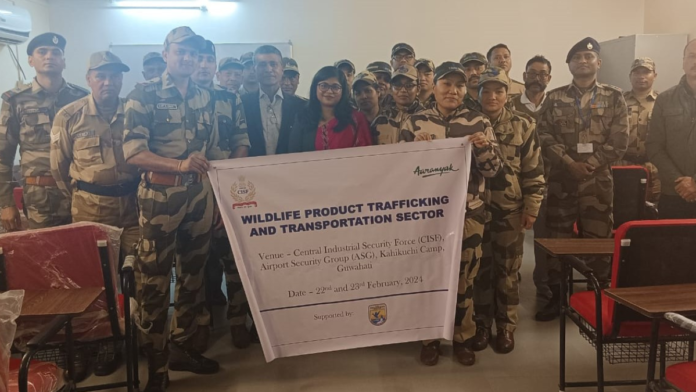Amidst the lush greenery and rich biodiversity of Assam, the surge in wildlife trafficking has emerged as a significant challenge for the Central Industrial Security Force (CISF). Wildlife trafficking, a clandestine operation driven by illegal trade networks, poses a grave threat to the region’s ecological balance and the conservation of endangered species.
In recent years, Assam has witnessed a notable increase in incidents of wildlife trafficking, with criminals exploiting the state’s dense forests and remote areas for their illicit activities. The CISF, entrusted with safeguarding critical infrastructure and sensitive installations across the state, has been at the forefront of combating this growing menace.
The surge in wildlife trafficking has raised concerns among conservationists and law enforcement agencies alike. Poachers and smugglers target vulnerable species such as rhinoceroses, elephants, tigers, and pangolins, exploiting them for their valuable body parts, which are in high demand in illegal markets.
The CISF, equipped with its dedicated teams and advanced surveillance technologies, has intensified its efforts to crack down on wildlife trafficking networks operating in Assam. The force has enhanced its patrolling and vigilance in wildlife-rich areas, collaborating closely with local authorities and wildlife conservation organizations to intercept illegal activities and apprehend perpetrators.
Despite the challenges posed by rugged terrain and dense forests, the CISF remains committed to its mission of protecting Assam’s precious wildlife heritage. The force’s proactive measures have led to several successful operations, resulting in the seizure of contraband items and the arrest of wildlife traffickers.
However, combating wildlife trafficking requires a multifaceted approach involving not only law enforcement but also community engagement, awareness campaigns, and stringent legal measures. Efforts to curb illegal wildlife trade must address the root causes driving this criminal activity, including poverty, lack of livelihood options, and demand for wildlife products.
As Assam continues to grapple with the surge in wildlife trafficking, the CISF remains steadfast in its resolve to preserve the state’s natural treasures for future generations. By collaborating with stakeholders and leveraging its expertise and resources, the force aims to stem the tide of illegal wildlife trade and safeguard Assam’s rich biodiversity for years to come.



